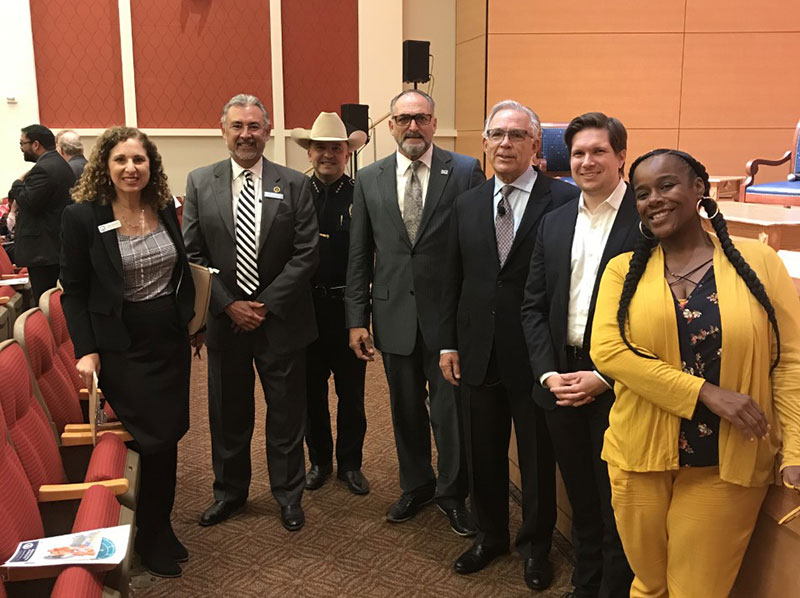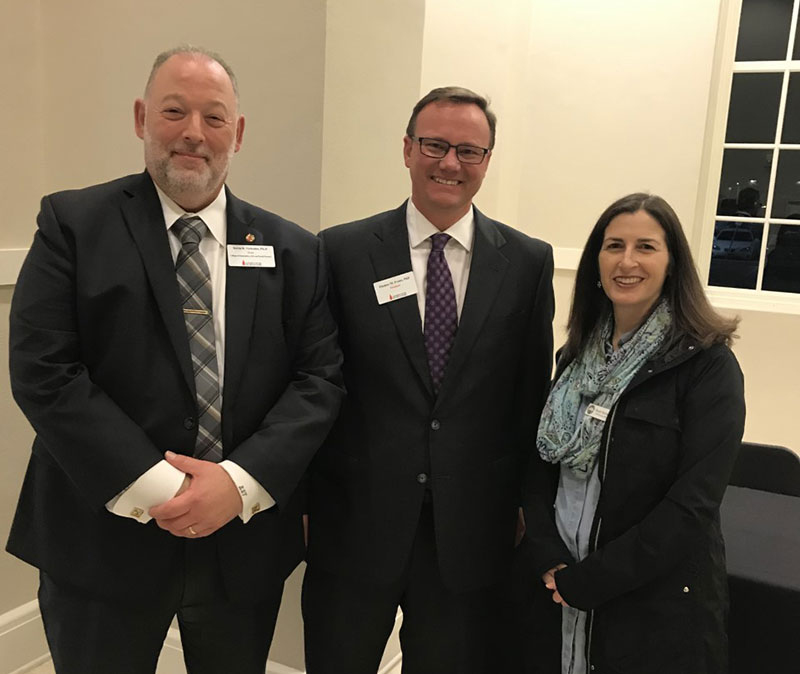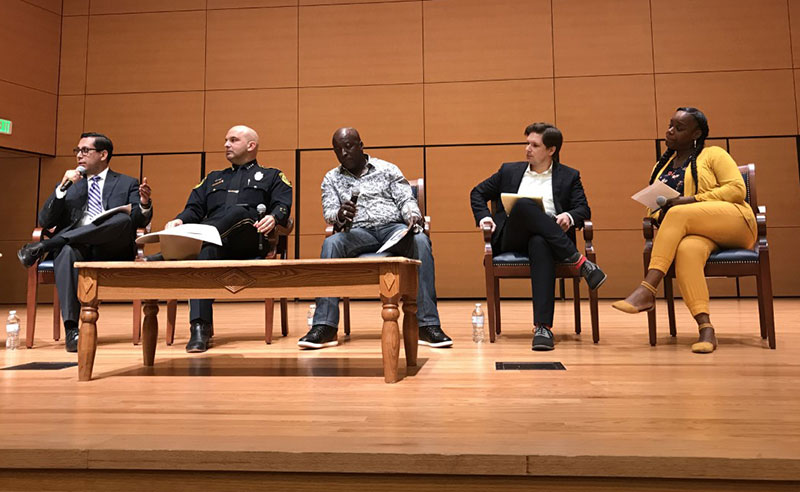Federation’s CRC and community explore impact of mass incarceration in America

Community Relations Council (CRC) Director Lisa Epstein, District Attorney Joe Gonzales, Sheriff Javier Salazar, CRC Chair Winslow Swart, Robert Rivard, Peter Steffensen, and Adrienne House standing for a photo in front of the UIW stage.
On November 4, the Community Relations Council of the Jewish Federation of San Antonio co-sponsored a powerful dialogue on “Mass Incarceration: A Policy Crisis” with the University of the Incarnate Word. During the event, people impacted by mass incarceration spoke courageously about their lifetime sentences due to offenses that they have paid for many times over, while District Attorney Gonzales, Sheriff Salazar, and State Representative Diego Bernal listened and responded candidly about the challenges they face to making change.
People who were in attendance were deeply moved, even haunted, by what they learned. University of the Incarnate Word President Tom Evans opened the event by describing the problem. The U.S. is less than 6% of the world’s total population yet has 25% of the world’s incarcerated population. Broken down, the number illustrated the disproportionate impact incarceration has on People of Color. People of Color are six and a half times more likely to be arrested for drugs than White people who commit the same offenses and Latinx are twice as likely to be incarcerated as Whites.

District Attorney Joe Gonzales pointed out programs he has introduced to help mitigate mass incarceration, including cite and release, pre-trial diversion, declination policy, and criminal trespass policy. These policies are designed to help keep non-violent offenders, the mentally ill, and the homeless, out of the jails. However, the Sheriff described a jail that is still overflowing with people who do not belong there. “Jail is for people society is afraid of, not for people who are mentally ill and not for people who are there just because they can’t afford to get out.” Seventy-five percent of those in jail are being held pre-trial. That is, they have not yet had their day in court and are stuck in jail because they cannot afford the cost of bail. When someone is in jail, they are not at their jobs, not with their families, and not able to go to the doctor for ongoing treatment they need for mental or physical ailments.
Lareta Gatlin-McDavid explained how she cannot cut loose from the repercussions of the day she failed to render aid in a car accident in which she had left her name and number at the scene after police were called. Although she graduated summa cum laude with a Bachelor’s and Master’s degree and was a working mother of three children, she spent 18 months in jail for her offense, followed by 18 months of parole. While her time at jail was traumatizing to her, it was equally as hard on her husband and children on the outside. It is her life after incarceration that has been a real shock to this well-educated professional. Due to her record, she cannot get the high paying job her education and experience qualify her for.

Adrianne House, another person impacted, described how, after completing her nursing degree successfully, the state would not license her due to her criminal record. Her crime was failing to report an increase in income to the welfare agency. She paid for the crime with parole and community service, but has not been able to get her life back on track due to the shackles of her record that prevent her from getting a well-paying job. In a chilling moment, House asked the panel directly, “What is the point of all your programs if no one will hire you?”
After the event, the audience had the opportunity to visit many organizations working on these issues and to talk to the panelists. The Community Relations Council is eager to follow-up with actions to help mitigate some of the complex issues leading to this crisis.
To learn more about the work of the Jewish Federation of San Antonio’s Community Relations Council, contact Lisa Epstein, PhD at [email protected].
Resources:
